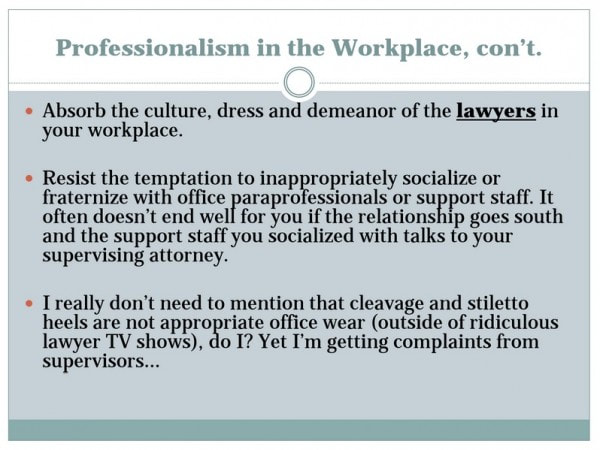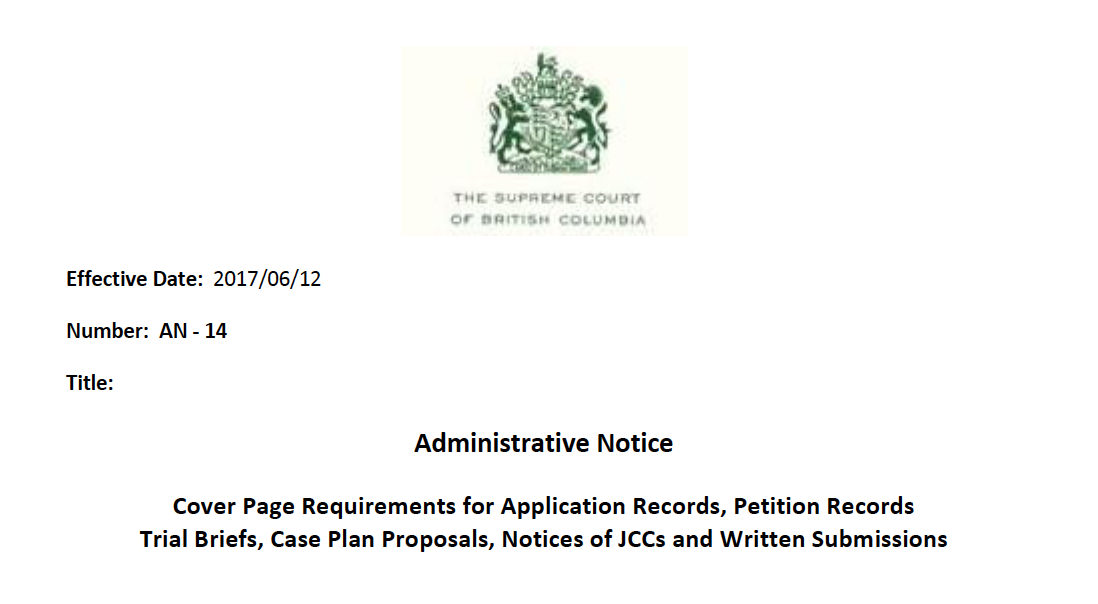In June, women’s coworking company The Wing hosted an event in its newly reopened Bryant Park space. The “fireside chat” promised a conversation between The Wing’s recently appointed executive chairwoman, Sheila Lirio Marcelo, and Fortune 500 board member Shellye Archambeau about “the challenges for women—specifically women of color—in the tech industry” and how to “create a blueprint for personal and professional success,” per the email invite. During the chat, the topic of college education came up—specifically, if degrees are needed for leadership positions. Archambeau and Marcelo, both Ivy League grads, agreed they’re still necessary; Archambeau said college degrees are especially critical for minority women seeking high-level corporate success.
0 Comments
Should legal professionals have more than one mentor?
You bet! And the more mentors the better! Should seasoned legal professionals have mentors? The answer is the same: you bet! Law is a fascinating field, each practice area presents their own body of knowledge often found in statutes and case law. But there are conventions which tend to be passed on orally. If you happen to be in a workplace where there is a senior person involved, hurry and get as much mentoring before they retire! For those who consider pupilage as part of practice, they will actively train juniors professionals. For those who have lawyers who are to busy, then there are many continuing professional development resources internally and externally. One that is noteworthy is volunteering, in Vancouver, there is Amici Curiae Friendship Society, volunteers get to network with legal professionals from different fields, each with varying tenure. Volunteers also get exposed to different areas of law. Curious? Check them out: https://www.legalformsbc.ca/legal-professionals.html. Now that you accepted your new job, what do you do?
Consider: 1. Hand write a short letter and mail it to the person who hired you. Please resist the temptation of email. You were the best candidate for the job which means that you likely ticked most of the boxes but not all. So constructively, invest your time and energies to tick the next box even before stepping into the firm. Say something like: Thank you for inviting me to you firm. I’m so excited to be begin on [insert date] !Is there anything I can do to prepare myself to best support you. If there’s a skill or law office software you know will be a major part of your job—and you don’t have much prior experience with it mention it specifically and ask if there’s a website, an internal procedure manual or other resource for you to review. 2. If you have not yet done so, review your files and BF. Tidy each. Be considerate to the new person taking over. Leave notes. Write memos. Offer to be available to assist in transition. The profession is small community. 3. Be strategic on who you should tell. You are still a member of your current firm. 4. Keeping confidences is a must even after you have left. Be always aware of potential conflicts in your new firm and alert your manager. 5. Now go tell your loved ones and take them out for a nice meal.  So you have decided to leave your job. Spoiler alert: it’s never easy to leave a job. The grass is not always greener but if you really must, read on .... Whatever the circumstances of your departure, there is one thing you need to remember. The legal community is a relatively small one and the way you choose to leave your job may have an impact on your ability to get a new job. If you leave a position impression behind, your employer will remember that. If you leave a negative impression, that’s what they’ll remember and that’s what will be passed on to your new, prospective employer. Not only that, but it may, in a small community, have a long-term effect on your employment opportunities. How do you leave a positive impression? Follow these simple steps: Share what you know with the people who are going to replace you. Make it easy for your replacement to step into your shoes. Begin writing a memo to your successor. Tell them all the tricks that you’ve learned over your years in the job. If you’re comfortable with it, leave them your email or phone number so they can contact you after you’ve left if they have any further questions. (Ask your principal for permission first.) Share what you know with your employers as well. Let them know where you think things might be improved for your replacement and give them suggestions on how to do that. Do this in a positive way – “I’ve been thinking about what I could do to make this job more interesting and efficient and I’ve come up with,” rather than, “This is what you’ve done wrong.” Your employer will remember that you’ve been considerate and that you’ve done them a favour when they’re asked for references. Give as much notice as required and, if possible, be flexible with your departure date. This isn’t always possible, but your employer will remember you with fondness if you give them time to find a replacement. Don’t leave without notice. Thank your employer for the opportunities you enjoyed over the years you worked with them. Make sure they know that you enjoyed your time with them and that you learned from the experience. This is equally important whether you’re leaving on your own or they’re asking you to leave. Remember that often in termination situations, your employer doesn’t have a choice, either. Explain why you’re leaving in a positive way. If you’re leaving for a better job, tell them that you’ve had an opportunity that you can’t say no to, but be prepared for them to ask you to stay and decide what you’re going to do when that happens. If you’re leaving because of problems in the office, you might be better off to write a short letter telling them what the problems were, but emphasize the good experience you had while you worked there. Exit interviews are optional and are used by many firms. If you’re unhappy with the way you’ve been treated, you might want to opt out of the exit interview if you don’t think you can respond positively to the questions. Remember, you want to leave on a positive, rather than a negative, note. So if you’re angry and you want to tell them everything that’s wrong with the firm, an exit interview is probably not a good idea. Stay calm and don’t speak ill of anyone no matter how much you want to. It doesn’t help the firm you’re leaving and it makes you look bad. It can affect your job search, not just now but in the future. Remember that you might need references from your employer and/or your co-workers and remember, too, that this is a small community and you may even want to return to this firm later in your career. It’s not always easy to be positive when you’re leaving one job for another, especially if you’re leaving because you’ve had a bad experience or you’ve been terminated, but if you leave on a positive note, you look good. And that’s the impression you want all your employers to have of you – that you were professional and courteous even under the worst of circumstances. Heartfelt. Handwritten.
Those are the only 2 rules that matter. Thank you notes are tactile, they are your second attempt to establish a human connection to the decision maker. Whether they are still deciding, sitting on the fence or have made a selection (and it was not you). Resist sending the email please. Let me help you get started .... It often happens that support staff move from a large law firm to a smaller one. This transition can be stressful because small firms work quite differently than large ones. In order to make the transition as smoooth as possible, here are a few best practices:
 There is a difference between professional skills and professionalism. When we talk about personal presentation – both when you are job hunting and when you are on the job – we are talking about professionalism. Professionalism may be easy to say but it is not that easy to achieve, especially early in your career. It takes time to learn what is and what is not appropriate. One of the best pieces of advice you can follow is to find the person in your office (or if you are still looking for a job, in your life) who best exemplifies the way you want to present yourself. Emulate them. Watch what they do and how they do it. Watch how they treat people and think about how they are treated in return. If you present yourself well, people will respond to you on a more positive level. It is human nature to respond to others in the way they present themselves. If you present yourself with dignity and grace, people will respond to you that way. These few aspects of professionalism will help set you apart from other applicants or other staff:
Here are some easy ways to polish up your presentation:
What makes an employee stand out? What makes that individual so indispensable that the thought of them taking a much deserved vacation sends their employer into a panic? Is it their knowledge of the requirements of their job? Is it their professionalism and ability to multi-task? Is it their ability to deal with stress and stressful individuals without breaking into a sweat? Yes, yes, and yes!
No.
In my BF, yesterday was supposed to be the day to beginning updating the BC Civil Litigation Guide about the new changes to SCBC rules of court that should come into effect on July 1, 2017. (My academic work makes it easier when I recruit for firms.) This year, I have nothing to update except for reviewing ANs and PDs. True, there is no rule that says rule changes need to come into effect on July 1 each year. And it has been like that for a long time. That there won't be any this year should not come as a surprise. We can point to the results of our recent provincial election; though if the government wanted to, they could have easily legislated the changes before the election, just like in 2013.After asking around at the Ministry of Justice, I concluded that there are other significant issues that have led to no rule changes at this time. I pressed my source for a probable date, the short reply: can't say when. You remember the excitement last March 31 2016 when the SCBC Rules Committee, comprised of judges and senior counsel, resigned en masse to protest our government’s decision to repeal a change to costs for fast track actions and changes to the civil tariff, Appendix B, party and party costs scheduled to come into effect July 1, 2016? On December 19, 2016, our AG announced that they have formed a B.C. Supreme Court Rules Committee to provide advice and make recommendations on changes to court rules that are fair, sustainable and have the public’s confidence. This led me to write: SCBC Rules Committee: Who's In Charge? (read it here). SCBC CJ Hinkson in responding to my question went further to say: "For now, I am the liaison between our Committee and hers, so if you have suggestions they can be directed to my attention." Now what? It is possible that the SCBC will rely on issuing AN, PDs and NTPs. It appears to be the case when I compare 2016 to year to date of 2017. While it has not issued any ANs in 2016, it has issued #13 and 14 (see below) this year; it issued 2 PDs last year and #52 to 54 this year; and it issued one NTP in 2016 and none this year. I reached CJ Hinkson yesterday, his answer: "As yet, there is nothing that I can report." Administrative Notice 14: a reflection of slippage in practice standards? It appears that the standards for court filings coming from firms may be slipping. This is my read on the latest Administrative Notice from Chief Justice Hinkson as he observed that "often these have no external cover page which identifies who filed it and to what court proceeding it relates. On many occasions, no contact information for counsel or the parties is provided. This is troublesome and time consuming for the registry." AN 14 became effective on June 12, 2017.Rare it is to see an administrative notice used as a reminder from his court. So please take heed on the stipulated requirements for an external cover page which will aid the SCBC in the more efficient management of these documents, which in turn, aid you. Click here for your copy of the notice. I can't go to the beach just yet, the rule changes in the PCBC need attending to. To learn more about AN, PDs and NTPs; the intricacies of chamber applications; and trial preparation rules; please refer to your copy the BC Civil Litigation Guide. Here is how to order a copy of BC Civil Litigation Guide. As well, if you are interested in training in the fundamentals of civil litigation, write me. |
AuthorDom Bautista Archives
August 2021
Categories |



 RSS Feed
RSS Feed